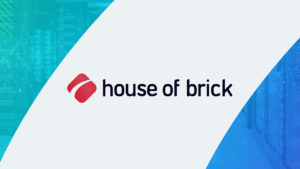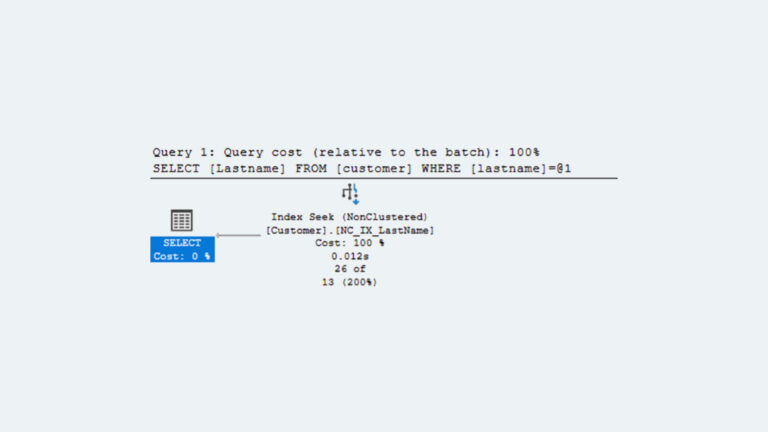Dave Welch, CTO and Chief Evangelist
The press loved the Campaign for Clear Licensing’s assessment of Oracle’s licensing practices, “Key Risks in Managing Oracle Licensing” when the CCL report was released in Q4 2014.
The 22-page report can be found here.
What has changed a year after the report was published? House of Brick’s Oracle licensing team is unaware of any substantive positive adjustments whatsoever that Oracle has made with respect to any issues listed in the report, be they technical, organizational, or in messaging. All we can come up with is awareness of the elimination of an occasional false positive, such as was the case with the August 2015 versioning of the MyOracleSupport script
options_packs_usage_statistics.sql.
The report’s blog post summary1 says, “This information is being shared with CCL members and is also being used as the basis of a constructive dialogue with Oracle so that positive change benefiting both the customer base and Oracle itself will result.”
I am of the opinion that with such dialogue, organizations such as CCL or the Deutsche Oracle Users Group (DOAG), engage the serious, predictable risk that licensees will hold off in exercising their contractual rights for some hoped-for concession or blessing on Oracle’s part. If, however, these organizations desired to communicate concerns to Oracle while concurrently exercising their contractual rights, fine.
Foundational to my analysis in this post is this: many Oracle representatives act as if they may be unfamiliar with the actual terms of the contract. However, I believe it impossible that Oracle management at some level could be unaware of the disconnect between Oracle’s policies and the contract. If that is the case, lack of action on the part of management to eliminate the gap, at best, constitutes endorsement of a situation that could lead to unnecessary payments to Oracle.
Quoting from the report’s executive summary:
Key issues identified by the respondents with Oracle can be broadly grouped into three themes;
1. The customer does not feel autonomous
Under this point, the report adds: “Customers are dependent on Oracle for decision-making.” The report also says: “the customer cannot complete or finds it very difficult to measure compliance or complete their own self-assessment.”
2. They receive inconsistent messages from Oracle
3. They feel that Oracle realigns the goal posts to favour revenue streams over customer requirements.
This report also provides seven recommendations for positive change:
1. One voice from Oracle
I suspect it would work to Oracle’s advantage to not have a single voice. Take a situation where a sales rep offers an alternative solution to a LMS finding while not addressing LMS messaging that may lack contractual merit.
2. A licensing knowledge base
To what end do we ask Oracle to provide such a knowledge base? Oracle has already provided it in so many licensing policy documents. The Partitioning Policy document is central to Oracle’s library of licensing policy documents. It contains well formatted, easy to understand information, substantive pieces of which enjoy no contractual merit and would restrict licensees from exercising their contractual rights. In our experience, this very clear document is also quoted by Oracle representatives out of context – to say something it doesn’t say: that sub-partitioning of vSphere clusters is not allowed as a means to contain an Oracle licensing obligation.
3. Greatly improved communications
I have to imagine Oracle is delighted for anyone to assume that poor communication is at the root of the problem. I don’t believe communication is the problem. Refer back to my earlier comment on Oracle’s senior management.
The report says: “Oracle needs to step up conversations and provide clarity to regain trust.” I believe that will accomplish nothing until Oracle at the highest levels decides to run an organization that spreads no messages that lack contractual merit.
4. Re-engineering risk
The report states: “Oracle needs to engineer its products and license programs to reduce unnecessary risk. The focus of control needs to be placed in the hands of the business not developers.”
Although I believe this to be symptomatic, and therefore secondary in the ranking of problems, I agree.
5. SAM Evangelism
The report states: “Oracle needs to help educate its customers to assign appropriate resource for managing software and proactively assist with licensing training and management practices around Oracle software.”
I endorse the recommendation.
6. Audit Clarity
The report says: “Oracle needs to be crystal clear with audit activity.”
I’m afraid that’s not good enough. Oracle provides very clear audit instructions for submitting data on the vSphere environment. The problem is that what is being asked for has no relevance to Oracle software having been installed and/or run on a given vSphere server. Or is this recommendation trying to suggest LMS provide audit results that report only compliance gaps that enjoy contractual merit? Similar to “One voice from Oracle,” I suspect it works to Oracle’s advantage not to have such “clarity” in its audits.
7. Strategic focus
On this topic, the report says, “Customer satisfaction, relationship strength and strategic value should replace audit revenue as a key performance indicator.” In this regard, Oracle’s senior management appears to have long ago made its choice as to which path it would take. I can’t recommend anyone hold his or her breath for changes in this area.
I don’t see the executive summary’s focus point “The customer does not feel autonomous” directly addressed in any of the seven recommendations. Don’t look to Oracle for its blessing of end-user decision-making and system architecture plans. Ask the VMware community how many feel they have received Oracle’s contractually founded blessing of their architectural plans.
Unless I’ve overlooked it elsewhere, the executive summary proposed item #1 “one voice from Oracle” as the solution to Oracle’s realigning of the goal posts. Rather, I think one voice is not the solution to that problem. The report says:
“Are licensing changes communicated?”
“A key concern raised regarding working with Oracle was gaining access to clear, easy to understand and reliable licensing information and updates.”
“Another key issue was Oracle’s internal silos. Do we seek licensing updates from LMS, or sales, or contracts?”
To have access to reliable licensing information is a fair expectation. But could it be that at some level of the organization, Oracle may not want to provide such clarity?
As for licensing updates, the contract’s Entire Agreement clause bars any party to the contract from initiating changes that are not reduced to bilaterally executed amendments. Short of that, the department within Oracle that sources an alleged update is irrelevant.
A clear exception to updates that require no amendment is the Technical Support Policies, which the contract specifies may change from time to time.
Customers are empowered to the extent they understand what they contracted for and stand on their contracts. Oracle’s unilateral licensing policy changes are as moot as empowered licensees choose to make them.
The report also states the following:
“Oracle LMS admit that customer’s documents are not updated regularly, again this is the remit of sales and not Oracle LMS.”
The Software Investment Guide’s migration topic asserts that newer licensing terms favor the customer. We have not seen that to be the case in the majority of substantial Oracle contract changes. Customers default position should therefore be to push back on any contract amendments short of exhaustive review.
“Whilst every organisation entering into contracts must be accountable for the agreements they purchase, a disproportionate amount of risk and management overhead appears to be placed on the customer by Oracle.”
Oracle has a reputation minimally in its database installation for enabling extra license features upon install and not providing adequate, if any, means to prohibit inadvertent use of those features. Like it or not, that’s the playing field.
“Similarly, many customers have not invested, or are not capable of investing, sufficient resource to manage their Oracle estate, or are aware of the investment in management overhead that they will require prior to engaging with Oracle.”
The playing field being what it is, the other players on the field have to step up to avoid risk. This means investing in on-going awareness of all the extra-licensed options and features, the database views and scripts that report alleged enablement and use of extra paid features, and routine internal reviews of database instances.
ITAM Oracle Licensing Seminars
I was initially encouraged by CCL’s bio:
Campaign for Clear Licensing’ is an independent, not-for-profit organization campaigning for clear licensing, manageable license programs and the rights of business software buyers.
The summary advertised:
Oracle Seminar 21st November, London. The Campaign for Clear Licensing, in partnership with The ITAM Review, is hosting a free one-day seminar on Oracle Licensing on Friday 21st November in central London. This is a great opportunity to discuss some of the issues highlighted in the report and meet your peers. Further info here: http://www.itassetmanagement.net/2014/09/22/oracle-seminar/.
My primary interest in attending was to make the acquaintance of multiple former LMS employees slated as speakers and get familiar with their messaging and tenets. I encountered registration page language limiting attendees to end licensed customers of Oracle. While House of Brick is an Oracle licensee, I understand my larger role is that of consultant. I inquired via email and was told my attendance would only be accommodated at this or other similar events should I become a sponsor. That experience left me wondering if in effect CCL was primarily a lead generation engine for ITAM.
Conclusion
While the CCL report contains much factual information, I believe the overall premise of hoped for improvement by engaging Oracle in dialogue to be flawed.
The Center for Clear Licensing and Oracle documents referenced are copyright their respective corporations. Quotes from The Center for Clear Licensing and Oracle documents are per U.S. copyright law fair use doctrine.
1 – As of this writing, I am unable to view four of the five comments in the CCL blog post announcing the report.






